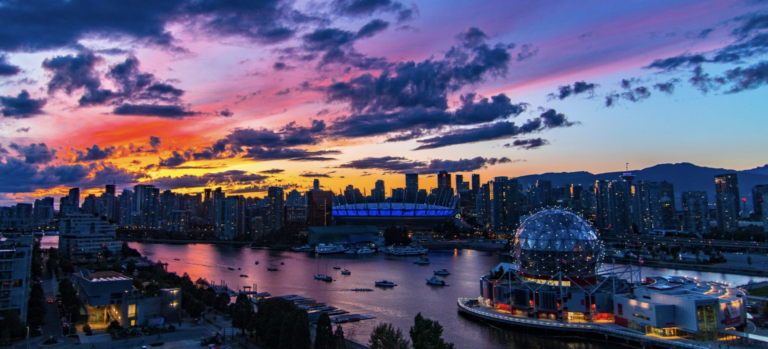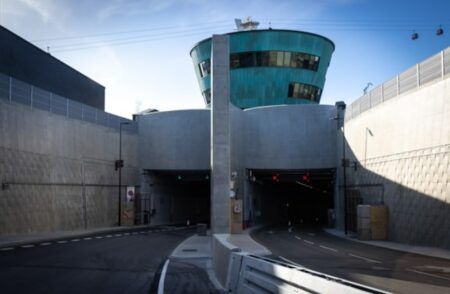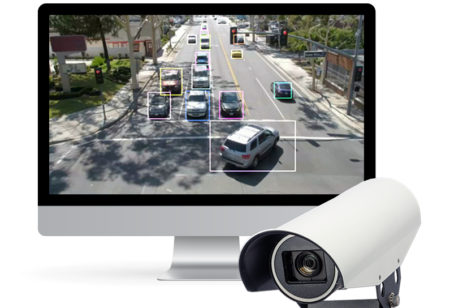The Institute for Advanced Research in Artificial Intelligence (IARAI), an independent global machine learning research institute established by HERE Technologies, has announced the results and winners of the second edition of its Traffic4castcompetition. The goal of the competition is to predict traffic in multiple, global, major cities with varying cultural and economic backdrops, based on industrial-scale traffic data provided by HERE.
Traffic congestion is an issue for cities worldwide and it comes with a negative social and environmental impact. Making mobility more sustainable remains one of the biggest challenges of our times. The Traffic4cast competition series aims to get to the core of this issue by challenging participants to understand complex traffic systems, with the goal of predicting their future states. Advanced traffic prediction is enabled by capturing simple, implicit rules underlying a complex system and modeling its behavior. As a result, superior AI-based predictive models can optimize the planning of smarter cities and more efficient road networks.
“Our design for this year’s competition was heavily influenced by what we learnt from Traffic4cast 2019. This year, we provided more granular data and doubled down on the question of whether ancillary static and dynamic data, like the number of restaurants in each cell and the number road incidents we observed, would improve the results or give rise to other creative winning architectures. The results surprised us on both fronts,” said Michael Kopp, Head of Research at HERE and founding co-director of IARAI. “Through our bonus challenge we also saw approaches that can translate between the dynamics we observe in traffic and ancillary dynamics dependent on it. As a result, questions of how weather and traffic movements are related or whether we can predict the movement of different classes of road vehicles, such as two-wheelers by observing mostly four-wheelers, through this gridded spatio-temporal aggregation approach can now be tackled.”
The winning teams hailing from South Korea, China, Sweden and the US were among more than 26 teams from around the world which submitted over 54 entries.
1st prize: Sungbin Choi
The top-ranking solution achieved the best performance by averaging several models based on UNet, a convolutional neural network (CNN) used for image segmentation. The models contain encoder and decoder blocks with skip connections and varying combinations of densely connected convolutional layers and pooling layers, with different connections between them.
2nd prize: TLabV2 team
TLabV2 team implemented spatio-temporal predictions to the High-Resolution Network (HRNet) architecture that maintains high-resolution representations in image segmentation. The authors introduced a new method of geo-embedding in order to learn the inherent attributes of each geographic location and introduced additional time, weekday, and holiday features as channels to improve the model performance.
3rd prize: LDS group
LDS group implemented a CNN based on UNet architecture, containing dense blocks of convolutional layers, pooling layers, and transpose convolutional layers. The model incorporates city road networks as strong prior knowledge by generating roadmap mask frames for each city based on the average traffic speed and applying them to the output.
As in 2019, the results of theTraffic4cast competition will again be presented at the prestigious Conference on Neural Information Processing Systems (NeurIPS) during a special session on Dec 11.
IARAI is both a Platinum Sponsor and the Traffic4cast Competition organizer at NeurIPS 2020. The institute is hosting several high-profile events, including two fireside chats:
Hopfield Networks in 2021 – fireside chat between Sepp Hochreiter and Dmitry Krotov on Wednesday, December 9 at 7:00 PM – 8:00 PM CET (10:00 AM – 11:00 AM PST) and Performers and Memory – fireside chat between Sepp Hochreiter, Krzysztof Choromanski and Johannes Brandstetter on Thursday, December 10 at 7:00 PM – 9:00 PM CET (10:00 AM – 12:00 PM PST)
Please see here the full agenda of events: https://www.iarai.ac.at/news/iarai-events-at-the-neurips-2020-conference/





